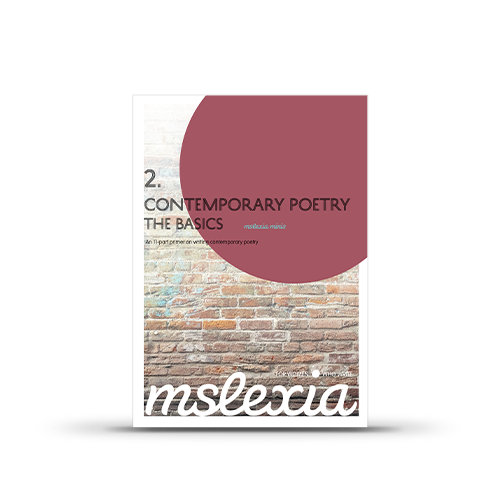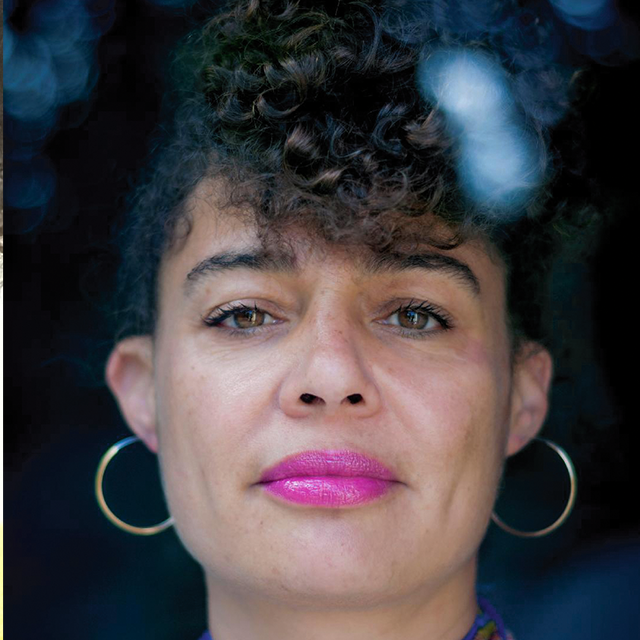.png)
The winner of our 2020 Poetry Competition was ‘A postcard on the restorative effects of sea air after a nervous breakdown’ by Ellora Sutton. Our judge Karen McCarthy Woolf describes it as ‘energetic, vigorous and surprising’, managing to ‘embed a description of a relationship within the experience of being at the seaside’. It is that rare thing, an epistolary prose poem. But what is a prose poem? (You can read the whole poem, and how Ellora come to write it in Meet the Winners.)
-------------------------------------------------------------------------------------
I like to think of poetic forms as an extended family. In that family, the prose poem seems to sit at a table that’s also occupied by the haiku, in the sense that both forms amplify a moment. To use a visual metaphor, where a haiku is equivalent to a snapshot, or a still from a movie, a prose poem is a larger excerpt.
Its relationship to narrative is interesting. If you want to write a narrative poem – with a beginning, middle and end, within the protocols of a narrative structure – then it’s unlikely to be a prose poem. You’d be better off writing a piece of flash fiction. The prose poem form doesn’t exist for a narrative purpose.
The taxi ride is another metaphor for how time might play out in a prose poem. You travel in a taxi from A to B; the prose poem takes place in that suspended space between two destinations.
The prose poem is also kin to the family of free verse. In a free-verse poem the rhyme, or the beat, or the rhythm, dictates where to break the line. Enjambment – where you break a line of continuous text – is part of the art of setting out the words on the page. In a prose poem you are making a conscious decision not to break the line; not to engage in those strategies for guiding the reader’s understanding of the meaning.
'You travel in a taxi from A to B; the prose poem takes place in that suspended space between two destinations'
When you decide to lineate you are automatically in the realm of the poem. When you decide not to lineate, you are edging closer to the realm of prose. So how do you decide?
I think there is the sense of a flicker, of something you catch from the corner of your eye that draws your attention – that can sometimes feel like a prose poem. And that word ‘feel’ is important. There is often an intuition about what form a poem needs to take, that arises from reading poetry in many forms, from many traditions – until you instinctively sense that this is the best fit for a particular poem.
For example, a poem that is strongly located within an oral tradition within contemporary poetry is less likely to play out as a prose poem – because the lyric qualities of rhythm and rhyme that suggest certain line breaks.
The work of Lydia Davis is worth considering in this context. She writes short pieces of text that could be classed as either flash fictions or prose poems. People find them thorny because they don’t sit comfortably in either category, but seem to occupy a liminal space – not between the two categories, but actually operating in both categories simultaneously.
Does it matter? Frankly, I find any attempt at binary categorisation unhelpful and reductive. I’ve spent my life occupying a liminal existence as mixed-race in a binary world. My great hope is that these strict binaries are breaking down – in poetry and elsewhere.
Right now I am trying to write a poem that is suffused with the colour white. There are so many things other than form to worry about – motif, metaphor, vocabulary...
Poetry should be lycra, not a corset. Break in and break out!
-------------------------------------------------------------------------------------
Karen McCarthy Woolf was born in London to an English mother and a Jamaican father and writes poetry, criticism and drama. Her ground-breaking debut An Aviary of Small Birds was shortlisted for both the Forward Best First Collection and the Fenton/Aldeburgh Best First Collection and was a Poetry Book Society Recommendation. Her collection Seasonal Disturbances was also a PBS Recommendation. Her pamphlet The Worshipful Company of Pomegranate Slicers was a New Statesmen Book of the Year and a PBS recommendation. She is editor of the literary anthologies Ten: The New Wave, Ten: The Next Generation, Bittersweet: Black Women’s Contemporary Poetry and Kin. She is also an associate editor at the international literary magazine Wasafiri.
-------------------------------------------------------------------------------------


